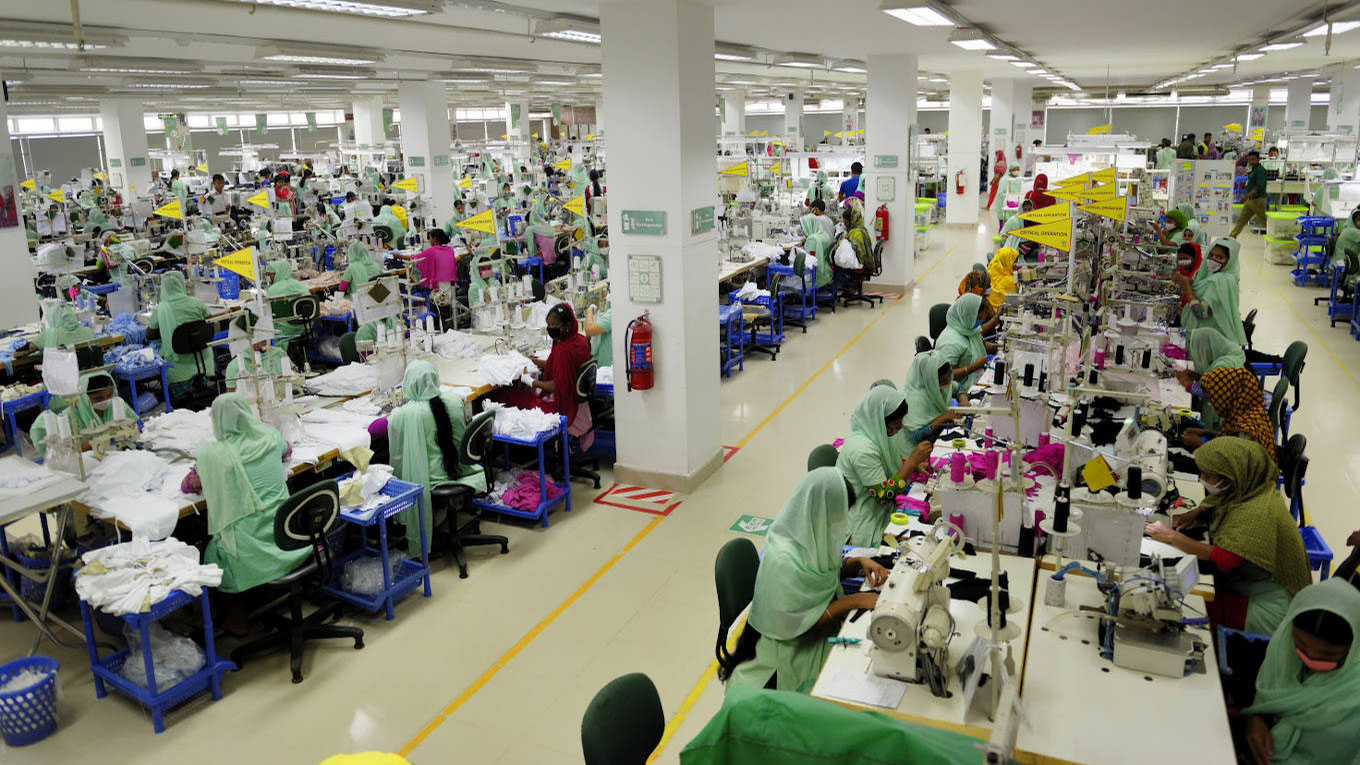
Category: General
Country: Bangladesh
Region: Asia
By Tanvi Munjal
16th November, 2023
In a recent statement by the Bangladesh Garment Manufacturers and Exporters Association, it has been claimed that major Western fashion brands are not paying “ethical” prices for clothes made in Bangladesh. This comes amidst ongoing protests over wages that have resulted in factory closures in the second-largest garment-exporting country in the world.
Last week, the government of Bangladesh announced a new monthly minimum wage of Tk12,500 ($113) for garment industry workers, sparking backlash from workers’ unions who argue that the amount fails to account for surging inflation. More than 100 factories have been shut down due to protests near the capital city of Dhaka, with four workers reportedly killed in clashes with police.
Faruque Hassan, the president of the Bangladesh Garment Manufacturers and Exporters Association, attributed the impasse to Western brands, asserting that higher wages could only be possible if they paid Bangladeshi factories more for their products. He stated, “They are not doing ethical sourcing in Bangladesh. The cost of financing has gone up, the cost of production has gone up, and the cost of gas has gone up. Now the wages have gone up.”
The unrest in Bangladesh has shed light on the strain that global inflation is placing on the garment supply chain, where historically cheap labour has allowed consumers to expect low prices. Some of the largest buyers of clothing from Bangladesh include H&M, Inditex (the parent company of Zara), and Walmart. The sector accounts for 85 per cent of the country’s exports, reaching an estimated $47 billion in the previous fiscal year.
Bangladesh’s garment sector, the second-largest in the world after China, has experienced rapid growth in recent years. However, rising costs for essentials like imported fuel and cotton have pushed the country into a crisis. Foreign reserves have fallen approximately 20 per cent this year, and inflation has nearly touched double digits, prompting authorities to seek a multimillion-dollar loan from the International Monetary Fund.
Living standards for the roughly 4 million Bangladeshi garment workers have deteriorated as a result. While the minimum wage has seen a 5 per cent annual increase since 2018, union representatives argue that inflation has eroded the real value of workers’ earnings.
Taslima Akhter, president of the Bangladesh Garment Workers Solidarity movement, stated, “Workers cannot survive in this current reality of inflation and price hikes.” Her group is urging the government to reassess the new minimum wage and is demanding a minimum wage of Tk25,000.
The responsibility for workers’ hardship, according to Akhter, lies partially with Western brands but primarily with the Bangladeshi factory owners and the government. However, Miran Ali, a factory owner and vice-president of the Bangladesh Garment Manufacturers and Exporters Association, defended the new minimum wage as a realistic figure considering the existing economic factors.
The association has asked members of the American Apparel & Footwear Association, including Adidas and Gap, to increase purchase prices from December to maintain the margins of factory owners. Despite statements affirming their commitment to improving wages, H&M, Inditex, and the American Apparel & Footwear Association did not comment on whether they would raise prices.
These protests have added to the tensions ahead of the January elections in Bangladesh, where Prime Minister Sheikh Hasina seeks a record-breaking fifth term in office. Opposition parties have seized the opportunity to rally behind the workers’ demonstrations and express concerns about potential election rigging.
The government has responded to the protests with a crackdown, filing cases against thousands of demonstrators. Prime Minister Sheikh Hasina has warned those causing disruptions to either accept the new wage or return to their villages without jobs.
Ahsan Mansur, executive director at the Policy Research Institute of Bangladesh think-tank, believes that the economic crisis, along with the opposition’s momentum and industrial action, has created a “perfect storm” for Sheikh Hasina’s government. Extended factory shutdowns could harm the economy by depriving it of much-needed foreign currency earnings.
As prices are a significant concern for buyers, they may attempt to exploit the situation, leaving factory owners in a challenging position. In an attempt to continue operating, factory owners may try to recover whatever costs they can while still producing goods.
It remains to be seen how this standoff between Western fashion brands, Bangladeshi factory owners, and workers’ unions will be resolved and what impact it will have on the country’s garment industry and upcoming elections.
Courtesy: Textilevaluechain.in
Copyrights © 2025 GLOBAL TEXTILE SOURCE. All rights reserved.